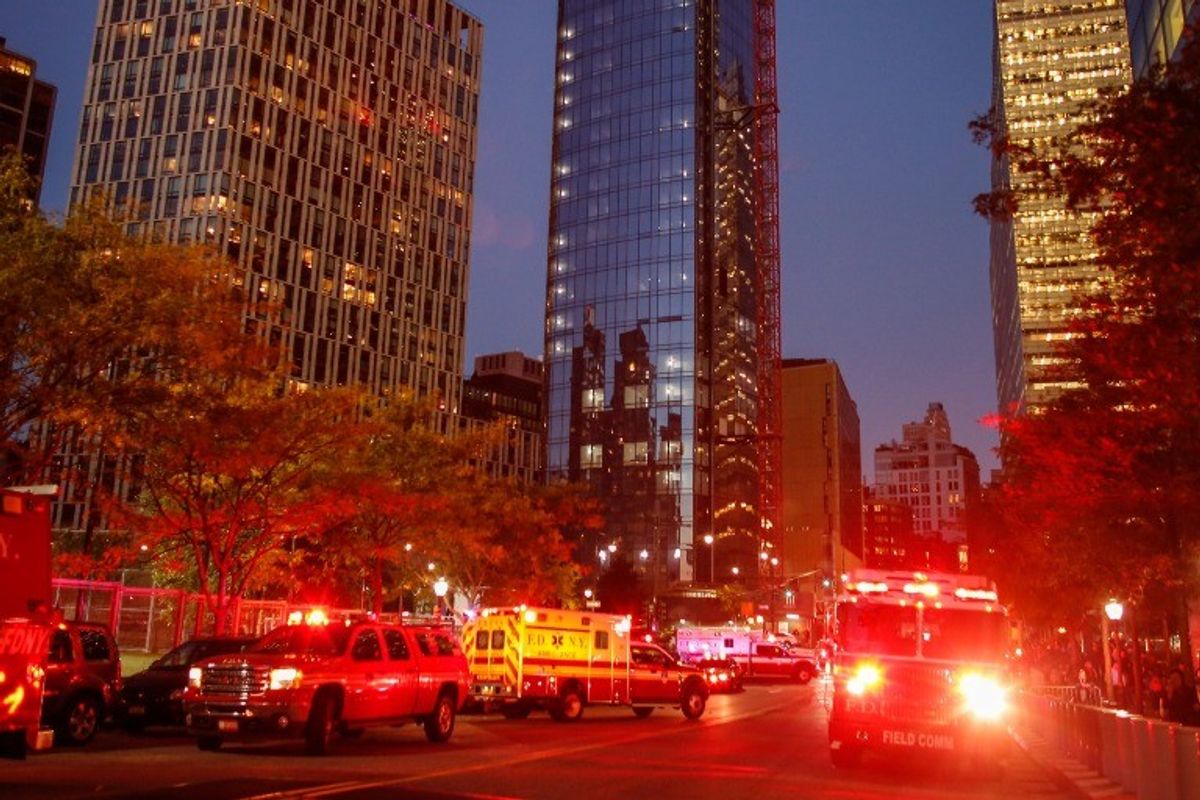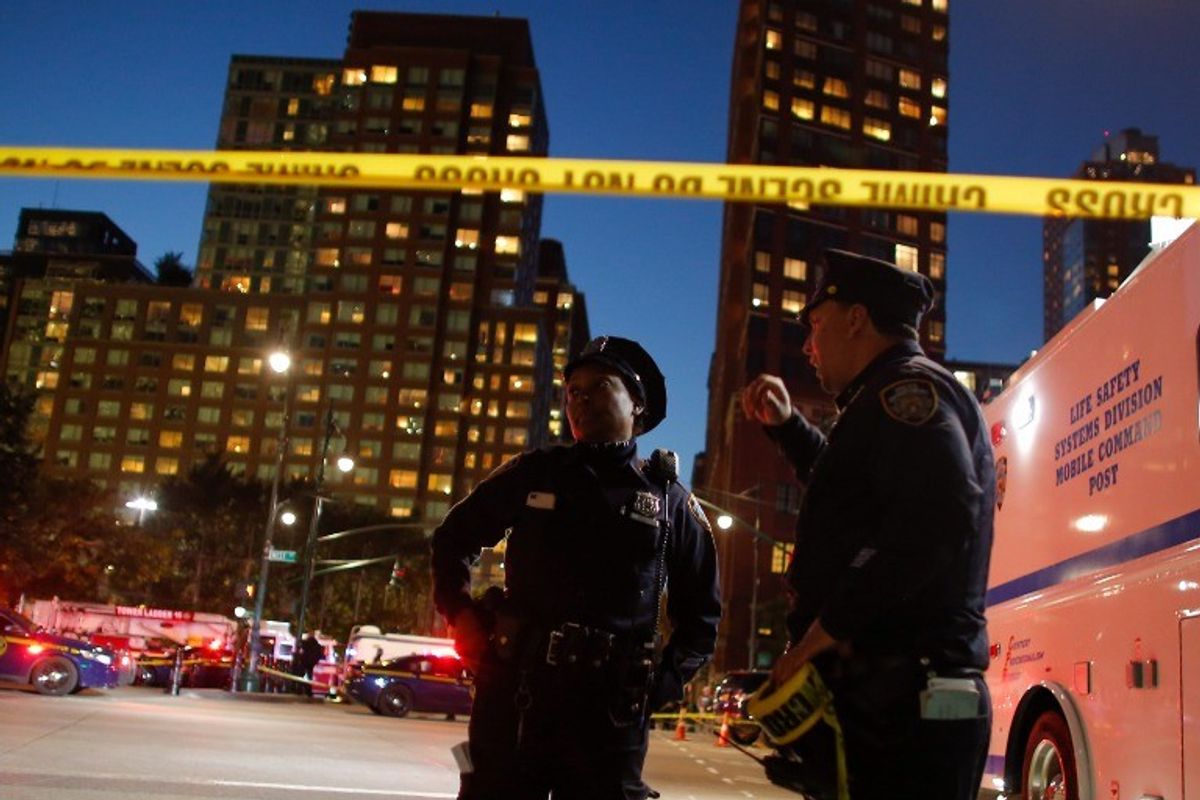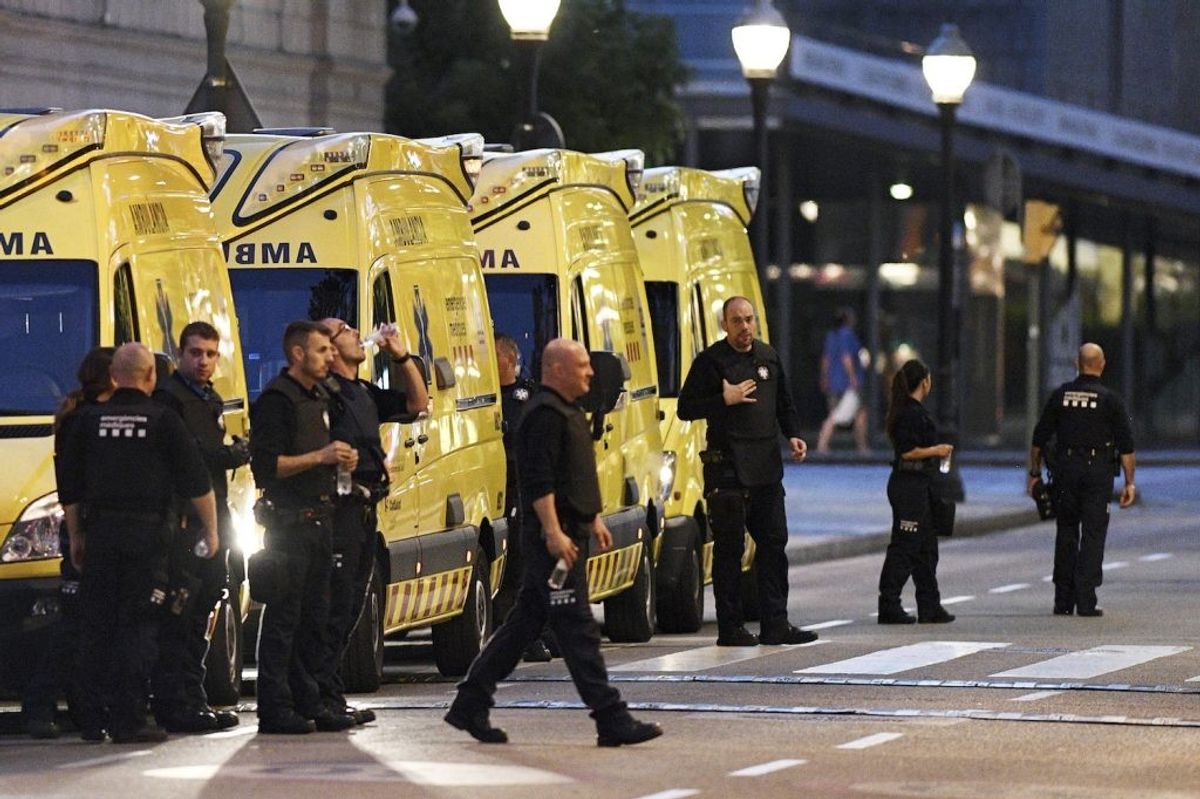The Cipher Brief: Nothing is definitive yet, but Omar Mateen appears to be a case of a lone wolf - possibly inspired by ISIS, but so far with no direct connections - with an apparent hatred for gay people. However, he was on the FBI’s radar. Twice he was investigated, once in 2013 for making comments to colleagues alleging terrorist ties, and again in 2014 based on potential connections with the American suicide bomber who blew up an explosive laden truck in Syria. Although the FBI determined Mateen was not a threat at the time and there was no legal case against him, shouldn’t Mateen have been on the intelligence community’s radar? What are the standards?
Matthew Olsen: Generally information about FBI subjects of terrorism investigations is shared widely with the intelligence community. So the intelligence community, including the CIA and NCTC, would generally have access to that information to be able to support the FBI investigation with information that may be contained in databases that are held in those other organizations.
TCB: Would the domestic intelligence side of the FBI be aware of what law enforcement was doing?
MO: Absolutely. There is no real distinction within the FBI when it comes to national security cases between law enforcement and intelligence. It’s a single investigative effort that combines all of FBI’s intelligence and law enforcement sources and authorities to investigate national security cases. So there is no distinction within the Bureau between intelligence and law enforcement when it comes to these types of cases.
TCB: So there are no blind spots in the collaboration between the two?
MO: No, definitely not.
TCB: What are the rules for gathering domestic intelligence when investigating Americans suspected of having ties to terrorism? Are there more restrictions than there would be for a foreigner outside of the U.S.?
MO: There certainly are rules that apply to how the FBI investigates cases inside the United States. These rules are generally designed to enforce constitutional protections and to safeguard privacy and civil liberties in this country. Those rules apply to any investigation conducted by the FBI in the United States.
TCB: Is having the domestic intelligence component as part of the FBI—a predominantly law enforcement agency—a mistake? Some say it is too daunting of a responsibility for one organization to handle. Is that the case?
MO: No, I really disagree with that. When I see the FBI work—and I’ve seen it work effectively over the last 15 years and be involved with all kinds of cases—it brings to bear all of its resources, both intelligence and law enforcement, and all of the tools to identify ways to monitor and disrupt suspected terrorists who are acting within the country. There’s no distinction between the law enforcement and intelligence side of the Bureau. It’s a matter of bringing all the tools that are appropriate against a particular national security investigation.
TCB: Some people have suggested that when you’re conducting an intelligence investigation versus a law enforcement investigation that the standards are so different. When you’re trying to gather intelligence, you are not trying to gather information to necessarily prosecute someone. You’re trying to find information to stop an attack. It requires an entirely different mindset and a totally different culture - that could be difficult for law enforcement, no?
MO: I don’t think that is true of the FBI today. The rules that apply to investigations under the Constitution and under the statutes that apply, those rules apply to all investigations, whether it’s a law enforcement investigation or an intelligence investigation. The rules are the same across the board.
And from a cultural perspective, the FBI long ago changed its focus, really since the early days after 9/11, to ensure that its national security investigations are intelligence driven and are designed to proactively prevent acts of terrorism and not simply conduct investigations after a terrorist attack or simply to prosecute. Those days are long gone at the Bureau in my experience.
TCB: Is part of the problem with the Orlando case—another potential lone wolf situation - that it’s very difficult for any law enforcement or intelligence organization to track down someone who is acting on their own?
MO: That’s right. The central challenge that we face in these types of cases is identifying an individual who largely acts on his own, who may have been radicalized on his own over the Internet, and then can carry out an attack with readily available weapons as lethal as the ones in Orlando, with nearly 50 killed and many injured. Identifying someone and disrupting their efforts is very difficult when they don’t communicate with others, or travel overseas, or otherwise engage in conspiratorial activity that gives law enforcement and intelligence services the opportunity to disrupt them.
TCB: Is there a common profile for a lone wolf? As you look at the Orlando, San Bernardino, Ft. Hood and other attacks, the perpetrators seem very different.
MO: I think it has been a real problem in the efforts to identify individuals who may become a lone terrorist - they don’t fit a generic profile. They can be born in the United States; they can be born overseas. They may have recently converted to Islam; they may have been born Muslim. They can be educated or not educated. They can be employed or unemployed. So it’s very hard to draw a profile that would enable law enforcement and intelligence services to predict who is likely to become a lone wolf terrorist.
TCB: As you looked ahead to 2016, you told The Cipher Brief late last year that you expected smaller plots at more vulnerable locations—what we saw happen this weekend in Orlando. What more needs to be done to reduce if not eliminate the risk? Are there steps the government can take to make it harder for someone like Mateen—who was investigated for possible links to terrorism—to obtain automatic weapons?
MO: There are always more things that we should be doing. We need to learn from every one of these terrible attacks. One is the importance of intelligence and intelligence gathering. We need to make sure the FBI, as well as local law enforcement, have the tools to conduct appropriate surveillance of individuals who are under suspicion. That’s become increasingly difficult with the advent of encryption and ISIS’ widespread use of encrypted communications to communicate with followers here in the United States. It’s also become increasingly difficult in the aftermath of the Snowden leaks, which provided so many details on the way in which the government goes about collecting intelligence. So better intelligence is one area that we can improve.
A second area is taking a hard look at our gun laws and make it much more difficult for individuals who are under suspicion for engaging in terrorist activities to purchase weapons, especially military style assault weapons like the weapon that was apparently used in Orlando. That should be unacceptable. We have the capacity to take steps to stop a suspected terrorist from getting a weapon like this, and we should take those steps.
One last point I might add about ISIS. What we saw in Orlando is really an indication of what ISIS has been trying to do over the last two years, where they have decided that the best way to carry out attacks in the West, particularly in the United States, is simply by inspiring followers to undertake attacks on their own. We saw the call from ISIS’ spokesman last month saying there was no such thing as innocent civilians in the United States, and that civilians were appropriate targets. Now we’ve apparently seen the consequences of that sort of call to arms by ISIS.










